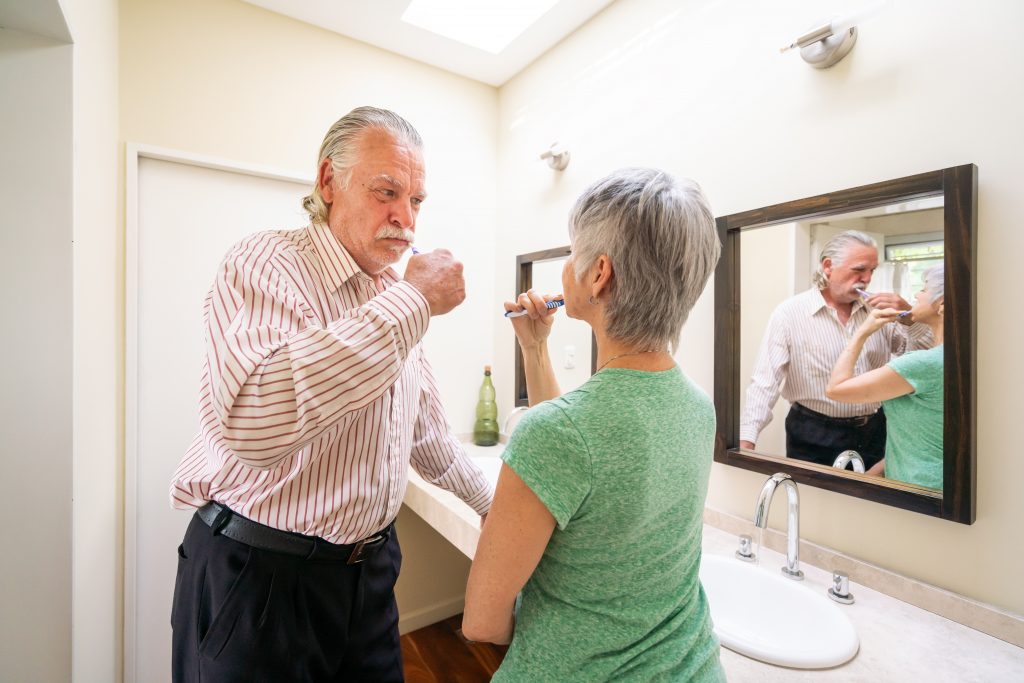
Aging is tough. It’s hard on the body, it’s hard on the mind, and it’s hard on the spirit. And it’s not just hard on the person who is aging. It also takes a toll on the people around them—especially the children who see the signs day after day and question the safety of a parent living independently in their own home.
This problem is far from rare. Pew Research recently found that 54 percent of Americans in their 40s have a living parent aged 65 or older and are raising their own children as well. The same can be said of 36 percent of adults in their 30s. If you’re part of this demographic and starting to question whether your parents are thriving in their home, what can you do?
Know the signs
Gauging whether someone else is thriving is highly subjective, but there are a few universally agreed upon criteria you can use. Consider the following:

Is your parent able to manage self-care?
This includes regular daily tasks like brushing their teeth, safely showering or bathing, and the like—essentially, regular daily tasks.
Can your parent safely maneuver their home?
Can they do things like safely make it up and down stairs? Do they remember to close and lock doors when leaving or coming home?
Do they have reliable transportation?
As people age, physical response times often change. Senior driving safety is a touchy subject in itself but it’s also important to safety—both for the senior and the others on the road. If your parent is still driving, look into DMV requirements for testing to ensure road safety. If they aren’t driving themselves, do they have reliable transportation to make it to appointments, get groceries, etc.?
Have they lost weight?
Significant weight loss is an unfortunate but very real indication that someone isn’t able to reliably nourish their body. It could be due to a variety of reasons—anything from inability to get to the grocery store to forgetfulness to lack of energy to prepare meals.
Are they maintaining an active social life?

While not everyone needs to be constantly surrounded by people, we all require some level of social interaction. Lack of interaction is associated with a host of mental and physical detriments.
Be respectful
The number-one thing you can do is respect your parent and be gentle with conversations. Don’t jump to conclusions, and be careful to ask questions, rather than lead with judgements. Doctors, the DMV, and other professionals are able to give professional opinions; lead your own conversations from a place of love.
Consider the options
There are a variety of options available to seniors, and oftentimes, the first step is not to displace them from their home. Look into extended care options, but also consider programs that come into your parents’ home, enabling safe aging in place, as well as senior care programs for fitness, transportation, and socialization. If safety is the primary issue, it may be time to consider living arrangements, but if your concerns lie elsewhere, there are often other solutions that can close the immediate gap.